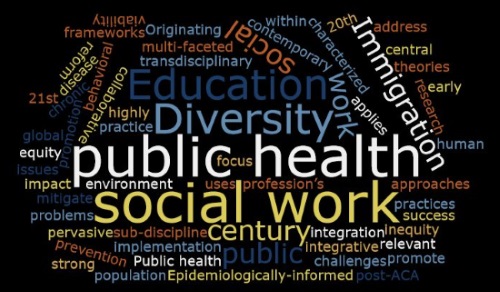Wayne State to offer joint Master of Social Work, Public Health

Beginning in Fall 2017, Wayne State University will offer a joint Master of Social Work (M.S.W.) and Master of Public Health (M.P.H.) degree to help meet the rising workforce demand for practitioners with competencies in both disciplines.
Wayne State's School of Social Work (SSW) and School of Medicine, Department of Family Medicine and Public Health Sciences (DFMPHS), worked together to offer a joint degree program that will train students in the knowledge, theories, approaches and methods of both professions. The program allows a core group of classes to apply toward both degrees, which makes earning them concurrently less costly and time-consuming than earning them separately. Depending on students' choice of social work concentration and whether they have a Bachelor of Social Work, the program requires 67-96 credits and six-to-eight semesters to complete.
One of only three in Michigan, the joint M.S.W.-M.P.H. degree will educate public health social workers to provide leadership on major societal challenges and initiatives related to health. These include aging and other demographic changes, natural and manmade disasters, globalization, chronic and infectious diseases, and health disparities and inequities. Early intervention, prevention, and promotion of healthy behaviors will also be a key area of focus.
"Social work and public health share many overlapping interests and competencies, including strategies for providing services for vulnerable and underserved population groups through a community perspective lens," said Kim Jaffee, associate social work professor and director of the joint degree program. "This program recognizes and develops that shared terrain. It combines public health's epidemiological approach to identifying social problems that impact health status and social functioning with social work's comprehensive, value-based 'person-in- environment' perspective."
According to Jaffee, a longstanding member of the American Public Health Association who has worked with the New York and Massachusetts health departments, key strengths of the program include its transdisciplinary nature and its focus on diverse populations and issues. Students will have access to faculty with expertise in international health, maternal and child health, racial and ethnic health disparities, mental health, substance abuse, family violence, child welfare, aging, and families-at-risk. Students are involved in transdisciplinary exposure, learning and engagement, said Jaffee, which contributes to the foundation for interprofessional team-building opportunities not often available in a degree offered by a single program discipline.
"Health care disparities and a shortage of social services among vulnerable populations are major concerns among the state's health and welfare officials," Jaffee noted. "The state will benefit from this joint degree program by the provision of well-trained professionals who are prepared to address current and emerging health care issues."
For additional information on the MSW-MPH program visit our website or contact MSW-MPH Joint Degree Program Advisor Sarah Doyle at az8091@wayne.edu or 313-577-4409 or MSW-MPH Joint Degree Director Kim Jaffee, PhD at kdjaffee@wayne.edu.